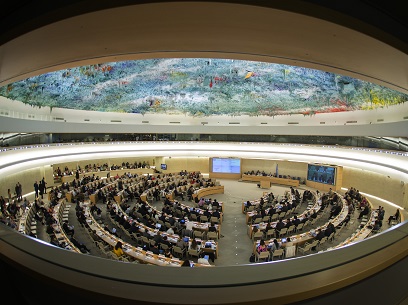UN High Commissioner for Human Rights Michelle Bachelet warned of “further war crimes” against Rohingya Muslims that may have been committed even after the clearance operations in 2016-2017 conducted by the Myanmar army (Tatmadaw). Her statements come in the wake of video testimony by two apparent Tatmadaw deserters who described acts of violence in vivid detail. The series of events are further setbacks for the government as it seeks to repair its international human rights reputation.
Speaking at the 45th Human Rights Council in Geneva, Bachelet referenced “disappearances and extrajudicial killings of civilians; massive civilian displacement; arbitrary arrests, torture and deaths in custody.” She described the situation as an ongoing crisis rather than a finished incident, saying recent actions “may constitute further war crimes or even crimes against humanity.” She made warnings just over a week after the release of videos of the two Tatmadaw soldiers confessing to brutal acts of violence against Rakhine Muslims, who self-identify as Rohingya, made under orders in 2016 and 2017. The soldiers are now in the custody of the International Criminal Court, the UN criminal court responsible for prosecuting individuals for war crimes and crimes against humanity.
The Myanmar military and government have maintained that the operations were provoked by the Arakan Rohingya Salvation Army, a Rohingya ethnic armed militia. Furthermore, it claims reports of violence against civilians are greatly exaggerated or fabricated entirely, and that any unnecessary acts of violence against civilians were isolated, unsanctioned and were duly investigated. Despite its counters — including a thorough defense by Daw Aung San Suu Kyi made before the International Court of Justice — the Rohingya crisis continues to hound Myanmar’s international reputation and drive away foreign investors, especially from the West. Bachelet’s statements show that in the eyes of the UN, Myanmar’s journey to redemption is far from complete.


